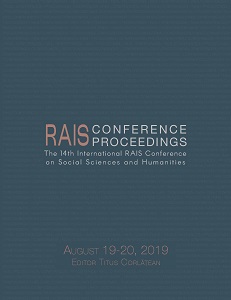Climate Change, Endangered Environment and Vulnerable Aboriginals of India – A Critical Study
Climate Change, Endangered Environment and Vulnerable Aboriginals of India – A Critical Study
Author(s): Gouri Sankar Bandyopadhyay
Subject(s): Energy and Environmental Studies, Ethnic Minorities Studies
Published by: Scientia Moralitas Research Institute
Keywords: climate change; damage to environment; indian aboriginal; livelihood; vulnerability;
Summary/Abstract: ABSTRACT: The severe effects of unprecedented climate change are justifiably considered a serious threat to human civilization in general and tribal-rural or aboriginal population in particular. The crisis has been identified globally but its consistently negative effects on indigenous people of the developing countries are not properly measured. In India such effects are projected to impact the millions of lives in folk-tribal heartland. It is historically proved that various effects of climate change such as sea level rise, recurrent floods, draughts, evaporation, increased cyclonic activities like tsunami, rising temperature have badly affected the downtrodden backward people like ‘adivasis’ (Indian tribal) and their tradition-bound livelihood in this subcontinent. Due to changed weather pattern agricultural production has been rapidly declined in the last few decades in India. The present study needs to state that if climate change occurs in such way, India will lose land especially in the coastline and the rural economy will be affected drastically. In fact, climate change is a scary prospect especially for these rural populations whose culture is predominantly subsistence-based and non-urbanized in basic nature. The paper also tries to focus on the age-old indigenous awareness of ills of global warming and ongoing climatic change. The forested tribes have raised again and again their voices against the abrupt tree-falling and the timber merchant-contractors-politicians nexus that lies behind it. Growing social awareness of climate change and balanced sustainable development can minimize the vulnerability of these marginal populations.
Book: Proceedings of the 14th International RAIS Conference on Social Sciences and Humanities
- Page Range: 33-39
- Page Count: 6
- Publication Year: 2019
- Language: English
- Content File-PDF

